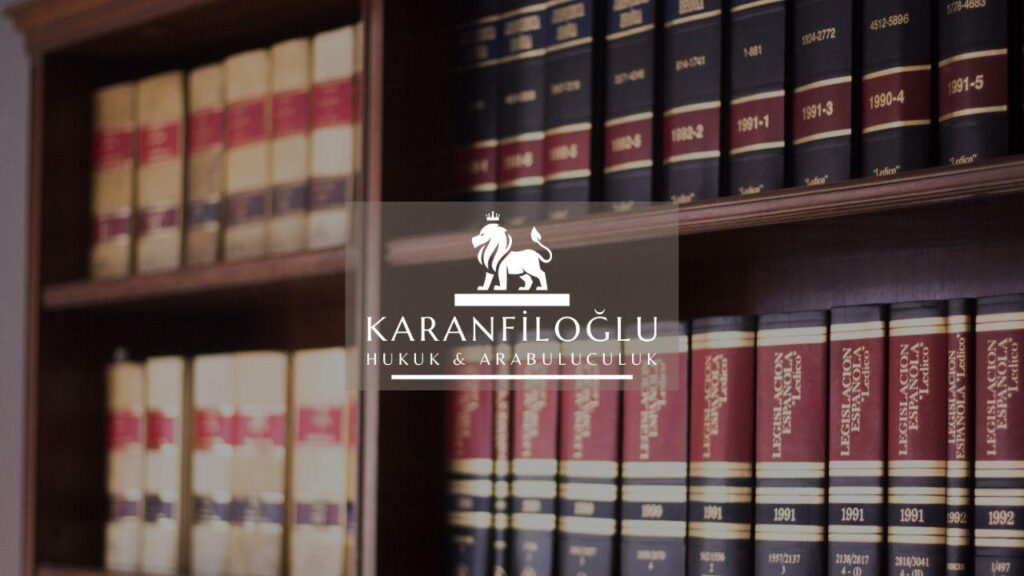Navigating the complexities of Turkish construction laws necessitates a thorough understanding of key regulations and legal frameworks that govern the sector. At Karanfiloglu Law Office, we specialize in guiding our clients through the intricacies of these laws, including the comprehensive Turkish Construction Law No. 3194, which regulates planning and zoning principles, and the critical obligations under the Building Inspection Law No. 4708. Whether you’re dealing with project planning, implementation, or post-construction disputes, an in-depth awareness of these legal stipulations is essential for ensuring compliance and protecting your interests. Our seasoned legal team stands ready to assist with every facet of Turkish construction law, from securing permits to navigating contract negotiations and resolving any legal challenges that might arise during your construction endeavors.
Key Regulations Governing Construction Projects in Turkey
One of the fundamental pieces of legislation governing construction projects in Turkey is the Turkish Construction Law No. 3194, which sets the framework for planning, zoning, and land use regulations. Under this law, municipalities are accorded significant authority in approving development plans, ensuring that all constructions align with the specified planning principles. Furthermore, the Environmental Impact Assessment Regulation, in accordance with the Environmental Law No. 2872, mandates that certain types of projects undergo comprehensive environmental assessments before receiving approval, to mitigate adverse effects on the environment. Compliance with these regulations is crucial, as breaches can lead to significant penalties, project delays, or even cessation of construction activities. At Karanfiloglu Law Office, our expertise ensures that your projects meet all necessary legal requirements, from the initial planning stages through to successful completion, safeguarding both your investment and the integrity of the construction process.
Another critical law that demands attention in the Turkish construction sector is the Building Inspection Law No. 4708. This legislation mandates that all construction activities be subject to rigorous inspection processes to ensure structural safety, adherence to building standards, and overall quality control. Independent inspection firms, accredited by the Ministry of Environment, Urbanization and Climate Change, conduct these evaluations at various stages of the construction process. Failure to comply with inspection requirements can result in severe consequences, including the suspension of construction permits or even demolition orders. Additionally, the law delineates the specific responsibilities and liabilities of all parties involved, from construction companies to project owners and supervisors, ensuring accountability through strict regulatory oversight. By partnering with Karanfiloglu Law Office, you can navigate these complex obligations confidently, securing the viability and longevity of your construction endeavors through diligent legal compliance and expert guidance.
In addition to compliance with zoning and inspection regulations, construction projects in Turkey must also adhere to the Occupational Health and Safety Law No. 6331. This law ensures the safety and well-being of all individuals on construction sites by stipulating comprehensive measures for risk assessments, emergency planning, and safety training. Integral to this framework are the roles and responsibilities of safety coordinators and supervisors, who must implement and oversee adherence to stringent safety protocols. Employers are mandated to provide adequate training and safety equipment to their employees, while regular inspections by government authorities ensure enforcement. Non-compliance can lead to hefty fines, legal liabilities, and even criminal charges in the event of workplace accidents. At Karanfiloglu Law Office, we offer meticulous legal support to help you comply with these occupational safety requirements, mitigating risks, and fostering a secure working environment throughout your construction projects.
Navigating Permit and Inspection Requirements
Securing the necessary permits and ensuring compliance with inspection requirements are foundational steps in any construction project in Turkey. Under Turkish Construction Law No. 3194, Article 21, obtaining a construction permit (inşaat ruhsatı) from the relevant local municipality is mandatory before initiating any building activity. Additionally, ongoing compliance checks are governed by the Building Inspection Law No. 4708, which mandates regular inspections to guarantee that the construction adheres to approved plans and regulations. Failure to meet these requirements can result in substantial penalties or project delays, emphasizing the importance of meticulous permit and inspection management. At Karanfiloglu Law Office, we offer expert guidance to make sure your project aligns with all legal stipulations, facilitating smoother, legally compliant construction processes.
In addition to obtaining initial permits, maintaining continuous compliance throughout the construction process is crucial. Article 32 of Turkish Construction Law No. 3194 stipulates that any significant modifications to the approved construction plans must be reported and sanctioned through additional permits. This might include changes in the structural design, usage intentions, or building size. Moreover, Building Inspection Law No. 4708 enforces scheduled inspections during different construction phases to ensure ongoing adherence to quality and safety standards. These inspections are not merely formalities but essential checkpoints that, if ignored or improperly managed, can lead to severe legal repercussions such as fines, work stoppages, or even demolition orders. At Karanfiloglu Law Office, we assist in managing these critical aspects of your construction project, helping you navigate through bureaucratic procedures and ensuring that every stage of your construction is compliant with Turkish laws.
Moreover, it’s imperative to understand the legal recourses available in the event of any permit or inspection-related disputes. Under Article 42 of Turkish Construction Law No. 3194, individuals and entities have the right to contest decisions made by local authorities regarding permit refusals or inspection outcomes. Engaging in administrative appeals or pursuing legal action could be necessary to resolve such conflicts. Additionally, the Turkish Administrative Procedure Law No. 2577 provides a framework for challenging administrative decisions, offering pathways to seek judicial review if necessary. At Karanfiloglu Law Office, we have a wealth of experience in representing clients in these complex legal scenarios, ensuring that your rights are protected and that any obstacles to your construction project are effectively addressed. From filing appeals to litigating disputes in courts, our comprehensive legal support ensures that you can proceed with confidence, knowing your project is backed by robust legal safeguards.
Dispute Resolution Mechanisms in Turkish Construction Industry
In the realm of Turkish construction law, resolving disputes efficiently is paramount to maintaining the momentum of construction projects. The Turkish Code of Obligations No. 6098 and the Code of Civil Procedure No. 6100 provide the primary legal framework for addressing disputes. Alternative dispute resolution methods, such as arbitration and mediation, are encouraged under Turkish law to expedite conflict resolution and reduce the burden on the judiciary. Notably, the Law on Mediation in Civil Disputes No. 6325 highlights the role of mediation, making it a requisite preliminary step before certain types of litigation can proceed. Additionally, the Istanbul Arbitration Centre (ISTAC) offers specialized arbitration services tailored to the unique demands of the construction sector. At Karanfiloglu Law Office, our legal experts are adept at navigating these dispute resolution pathways, ensuring that our clients achieve fair and timely outcomes in their construction-related conflicts.
A key advantage of opting for mediation or arbitration within the Turkish construction sector lies in the confidentiality and expertise these methods offer. According to Articles 4 and 5 of the Law on Mediation in Civil Disputes No. 6325, mediation sessions are strictly private, ensuring that sensitive project details remain undisclosed. Meanwhile, the provisions of the International Arbitration Law No. 4686 enable the appointment of industry-specific arbitrators, whose deep understanding of construction complexities can lead to more informed and balanced judgments. Moreover, arbitration awards, governed by the Civil Procedure Law No. 6100, can be swiftly enforced, facilitating quicker resolutions and minimizing project delays. At Karanfiloglu Law Office, we prioritize leveraging these confidential and expert-driven mechanisms, providing our clients with tailored and pragmatic solutions to their construction disputes, and safeguarding the progression and success of their construction projects.
In addition to mediation and arbitration, court litigation is another available avenue for dispute resolution in the Turkish construction industry. However, litigating construction disputes in Turkish courts can often be a lengthy and complex process, governed by the Turkish Code of Civil Procedure No. 6100. It involves multiple stages, including preliminary injunctions, evidence collection, expert testimonies, and possible appeals, all of which may prolong the resolution timeline. Understanding the specifics of court procedures, including the importance of timely filing and the evidentiary requirements under Articles 119 and 120, can be crucial for a successful outcome. At Karanfiloglu Law Office, our litigators are well-versed in navigating the intricacies of the judicial system, from drafting robust legal arguments to effectively managing litigation strategies. We work diligently to protect our clients’ rights and interests, ensuring that even in the courtroom, their construction projects remain on solid legal footing.
Disclaimer: This article is for general informational purposes only and you are strongly advised to consult a legal professional to evaluate your personal situation. No liability is accepted that may arise from the use of the information in this article.







